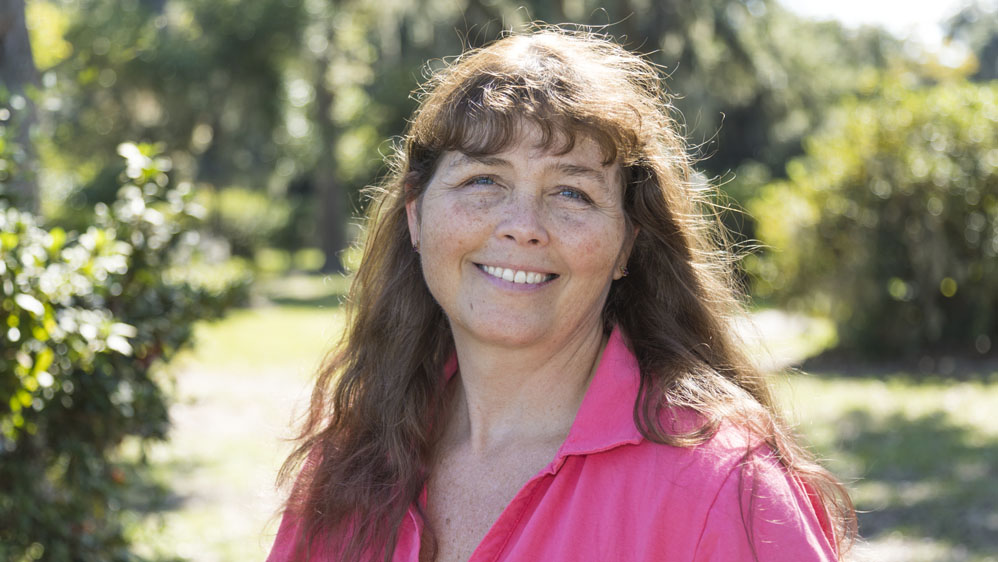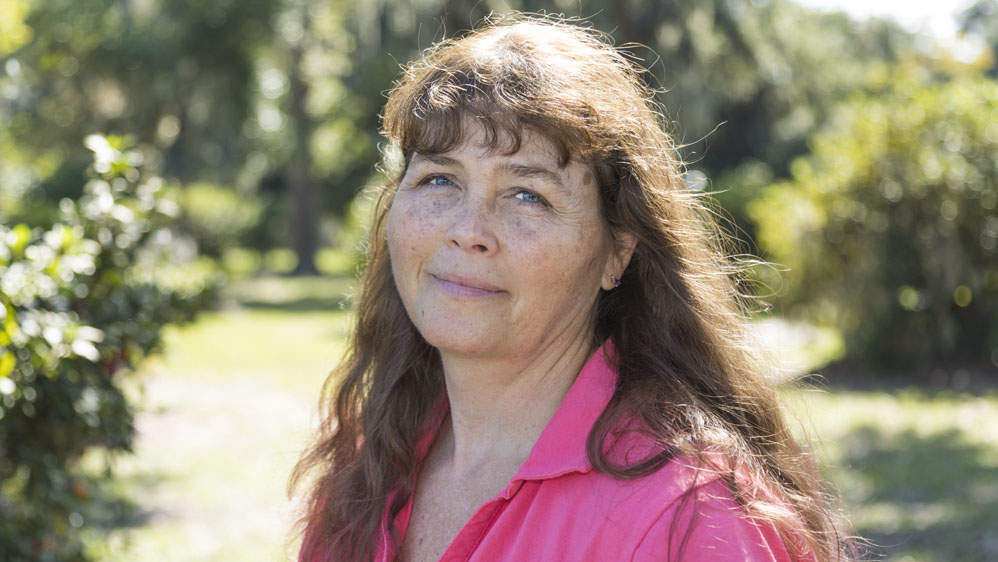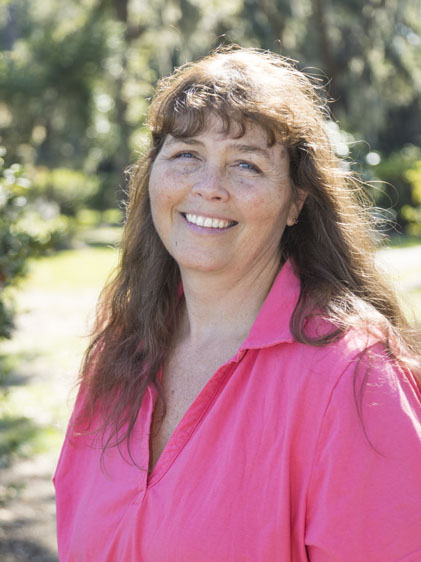Local Cancer Survivor Shares Success Story
October 26, 2017
“Cancer makes you realize what’s important and what’s not. I have a whole new appreciation for my family and friends.”

Having a family history of breast cancer, Angela McAlhaney had always been diligent about checking her breasts for changes. When her first mammogram at age 50 showed no abnormalities, she slacked off on the monthly self-exams thinking she was in the clear.

Six months later, her gynecologist found a small lump in her left breast during a routine annual checkup. To determine if it was a cyst or something more serious, her doctor sent her to the Beaufort Memorial Breast Health Center for another mammogram.
“It came back clear again,” McAlhaney recalled. “But just to be safe, they decided to do an ultrasound. This time, the radiologist saw the mass.”
Following a biopsy, she received the diagnosis. McAlhaney had stage 1 invasive lobular carcinoma, a type of cancer that is notoriously difficult to detect on a mammogram. The two-centimeter tumor contained estrogen and progesterone receptors, meaning her hormones were causing it to grow.
“When I found out I had cancer, I went home and baked cookies,” the Varnville mother of two recalled. “Baking is my therapy.”
After discussing her case with the Keyserling Cancer Center’s tumor board, Beaufort Memorial board-certified general surgeon Dr. Perry Burrus offered her several options for treatment, including a single mastectomy or a combination of lumpectomy and radiation therapy.
“I talked with several breast cancer survivors who had a recurrence in their other breast after having a lumpectomy and decided to have a double mastectomy,” said McAlhaney, a postpartum nurse in Beaufort Memorial’s Birthing Center. “I didn’t want to go through it again in five years. If my breasts were going to kill me, I didn’t want them on my body.”
Because she wouldn’t need radiation, she scheduled to have reconstructive surgery with a plastic surgeon immediately following her bilateral mastectomy.
A genetic test performed on one of the cancer cells in her tumor found the 53-year-old would not benefit from chemo treatment. But she would need antihormone therapy for at least five years to suppress the production of the hormones that were feeding her cancer.
Her oncologist told her that she had a low risk of recurrence and that her prognosis is very good.
The night before the surgery, McAlhaney’s co-workers threw her a party. They surprised her again the next day when she arrived at her hospital room following her operation.
“They had decorated my room with pink ribbons and boobies,” McAlhaney said. “They were fantastic about taking care of me the two days I was in the hospital.”
Her husband Perry, Hampton’s police chief, took a week off to help her at home. Friends and other family members pitched in as well, bringing enough casseroles to cover her first two weeks of recovery.
“Cancer makes you realize what’s important and what’s not,” McAlhaney said. “I have a whole new appreciation for my family and friends.”
This Beaufort Memorial patient story first appeared in the October 27, 2017, Hampton Guardian.
